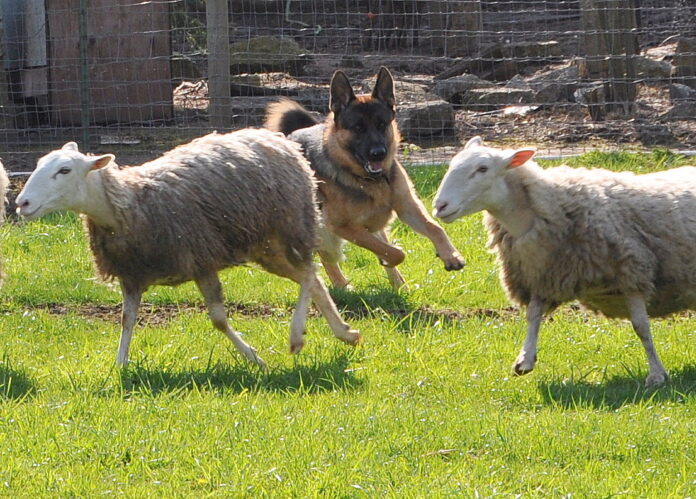
By Fran Jewell
I am approached daily about dog owners wanting to eliminate behaviors in their dogs that are “instinctual.” An instinctual behavior is one that comes hardwired in the dog when they are born. The behavior is hereditary from the parents and ancestors. All dogs possess what is called “prey drive,” which can come in different degrees or levels. This is instinctual behavior passed along from wolves for survival. In a very basic description, prey drive occurs when the wolf smells or sees game, then follows either the scent or vision, attacks the game, shakes it, kills it, and eats it with the pack.
What makes dogs different from wolves is that we humans have “domesticated” dogs from wolves by selecting certain portions of that “prey drive” and then breeding the dogs that possessed those specific portions in an effort to use them for human benefit. For example, our beloved Labrador retriever has been bred for his scenting or “hunting” behaviors, then his interest in returning the bird (prey) to his owner (pack). Other breeds, such as sight hounds, use their eyes to chase the prey for food for their human. Then there are the herding breeds such as Australian shepherds, German shepherds and border collies that will chase livestock (prey) to assist the owner in moving sheep or cattle to a desired location.
When we have mixed-breed dogs whose heredity is unknown, we don’t always know which portions of that instinctual “prey drive” they possess until they mature, because there might be “drive conflict” that must settle.
When we select a dog for our family, careful evaluation should be made to select a dog with the appropriate “drive” for our family. For instance, a herding dog that chases small objects and rounds them up may not be the best choice if you have small children. Those dogs may chase and nip children simply because of the dogs’ instinctual behaviors. Cattle dogs are notorious for nipping the heels of cattle, and therefore humans.
Each dog is an individual, even within a specific breed, and may possess more or less instinctual behaviors than others. How many Labs do you know that have no interest in hunting?
When choosing a dog for your family, purebred dogs have more predictability in their drive and temperament. Many mixed-breed dogs are incredible pets, as well. Doing a DNA test for breed might help you make a wise choice so you know what instinctual behaviors might come with your dog. DNA testing has become much more reliable and very affordable.
When we have a dog with higher amounts of these behaviors, we must understand that this is INSTINCTUAL and may be able to be CONTROLLED with extensive training, but can never be eliminated. Choosing a dog because of his color, hair length, or cute floppy ears is not usually the best way to choose a dog for your family. Understanding what the dog’s potential instinctual behaviors are and if those will fit for your family is truly at the heart of the matter. If you find yourself with a dog with instinctual behaviors that are difficult to live with, extensive training may be your best choice to influence the control of that drive.
Fran Jewell is a dog behavior consultant, NADOI-certified instructor and vice president. She owns Positive Puppy Dog Training LLC and can be reached at (208) 721-7221.
